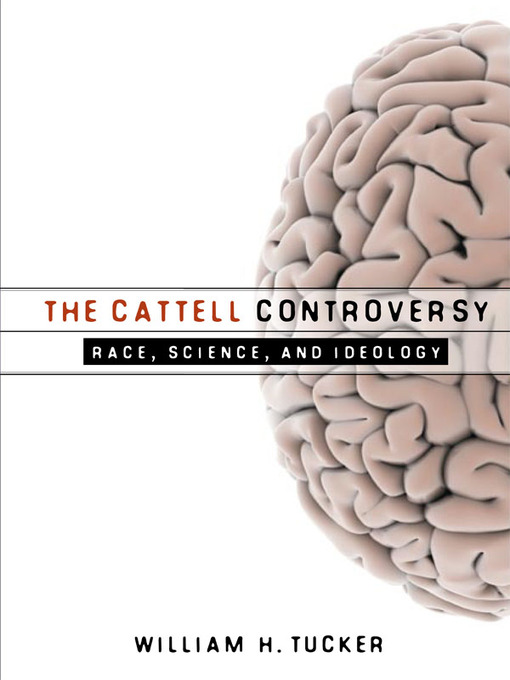In addition to his mainstream research, Cattell had also authored a series of publications that posited evolutionary progress as the ultimate goal of human existence and argued that scientifically measurable criteria should be used to distinguish "successful" from "failing" racial groups so that the latter might be gradually "phased out" by non-violent methods such as regulation of birth control. Derived from science, Cattell's evolutionary philosophy was intended to be the basis of a full-blown religion. Although the earliest of these works had been published in the 1930s, near the end of an era in which eugenically based policies for human improvement were much more acceptable, Cattell promoted similar ideas well into the 1980s and '90s.
The Cattell Controversy describes Cattell's socio-religious beliefs in detail and analyzes their relationship to his scientific contributions. William H. Tucker discusses the controversy that arose within the field in response to the award's postponement, after which Cattell withdrew his name from consideration for the award but insisted that his position had been distorted by taking statements out of context. Reflecting on these events, Tucker concludes with a discussion of the complex question of whether and how a scientist's ideological views should ever be a relevant factor in determining the value of his or her contributions to the field.
| Contents Preface Introduction: ?A Fierce Wind? 1. Factor Analysis and Its Discontents: Cattellian Science 2. In the Name of Evolution: The Beginning of Cattell?s Moral System 3. Beyondism and The Necessity for ?Genthanasia?: Cattellian Morality in the Post-War Period 4. The Cattell Convention: The Controversy Over the Award Conclusion: Science, Awards, and Ideology Notes Index | "A masterful contextualization of the life of a major contributor to psychology whose work spanned a dramatic era of growth in experimental psychology."—Journal of the History of Medicine"A thought provoking and systematically laid out argument. . . . Recommended reading to anyone with an interest in the history of the relationship between scientific methods, Western politics and culture."—Leonardo On-Line
"Clearly and meticulously documents Cattell's segregationist views. . . . Tucker grapples with issues of the relationship between science and political ideology, and the ethical obligations of scientists to the uses of their work. Highly recommended."—Choice
|William H. Tucker is a professor of psychology at Rutgers University-Camden and the author of The Funding of Scientific Racism: Wickliffe Draper and the Pioneer Fund.

